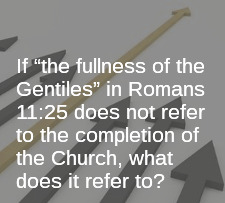Trying to Get the Rapture Right (Part 7)

So far I have tried to establish these important factors in determining the timing of the rapture of the Church. I fully realize that each of these points could be studied in more depth, but for my purposes I think the coverage is satisfactory. The factors are these:
- The time of the rapture is exegetically indeterminable.
- Hence, if it is to be known it must be deduced.
- As such the timing of this event can only be arrived at by way of inference to the best explanation (i.e. the best rapture scenarios will be C3).
- The 70th Week of Daniel is seven years long and commences with “the prince who is to come” making a covenant with Israel. This period is divided in half by the breaking of the covenant. The 70th Week has Israel in mind, not the Church.
- The white horse rider who appears at the beginning of what I take to be the seven year period is the Antichrist. In light of the Day of the Lord in 2 Thessalonians 2 not coming until “the apostasy” and the revealing of the man of lawlessness/sin (2:3), the rapture seems to take place at the start of the seventieth week (although 2 Thess. 2:4 could be interpreted in a mid-trib fashion).
- The concept of the Day of the Lord and its attendant images (e.g. “birth pangs”) are not technical terms which can be restricted to one event. However, the Battle of Armageddon is strongly connected with it.
- In the Book of Revelation the Day of the Lord is associated with the Second Advent of Christ in wrath.








Discussion